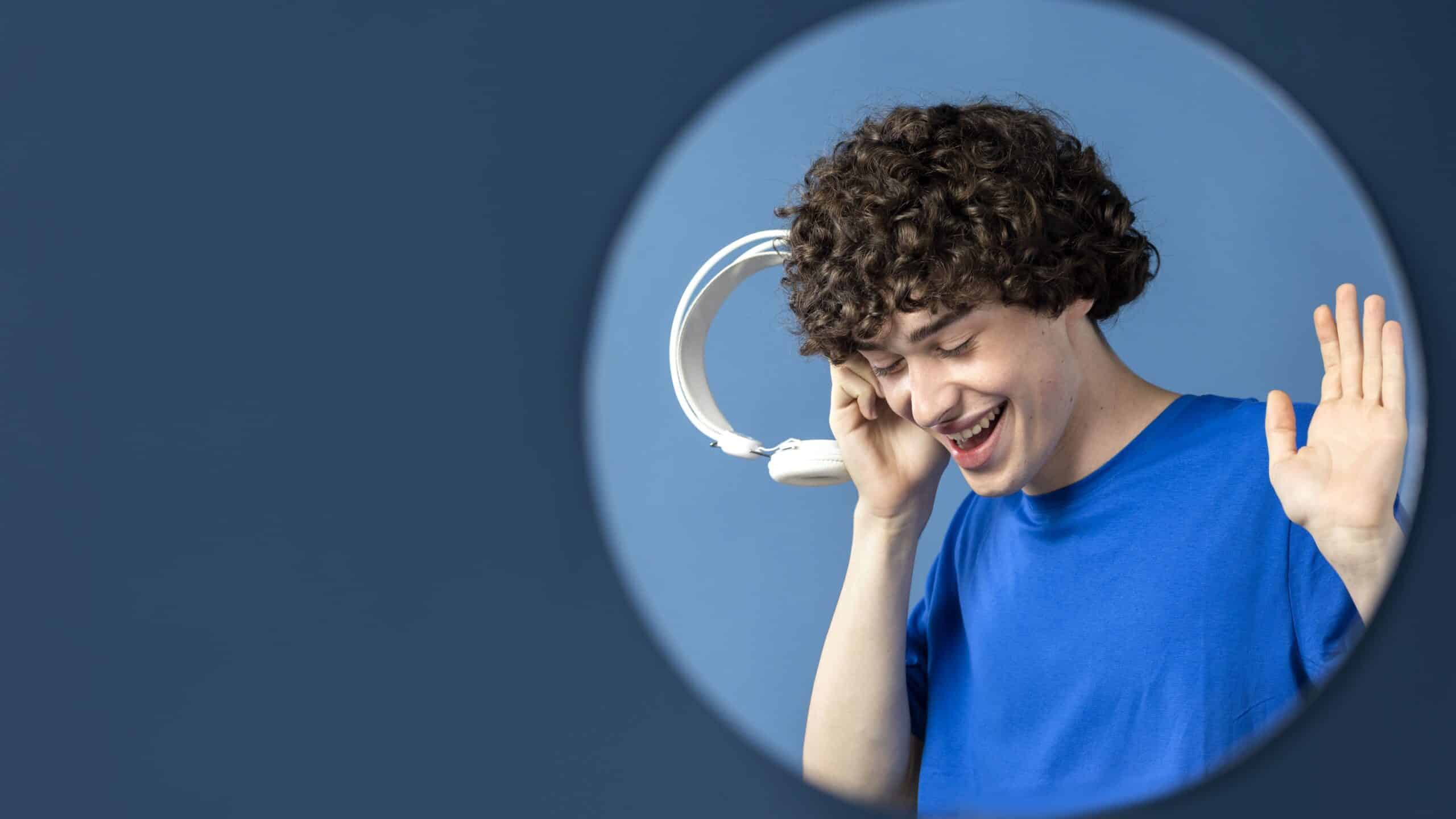Table of Contents
Hearing aids are a valuable investment in your health and quality of life. Like any sophisticated electronic device, they require regular care and attention to function optimally. If well-maintained, hearing aids can last anywhere from 3 to 7 years—or even longer. Whether you’ve just started using them or have been relying on them for years, learning how to extend their lifespan can save you money and prevent unnecessary repairs or replacements.
In this comprehensive guide, we’ll cover the top five ways to extend the life of your hearing aids, along with practical hearing aid longevity tips to help you protect your hearing device and prevent damage to hearing aids over time.
Keep Your Hearing Aids Clean and Dry
Moisture, earwax, and debris are the three biggest enemies of hearing aids. These small devices sit inside or around your ear and are constantly exposed to sweat, oil, and environmental particles. Over time, if not cleaned properly, these contaminants can lead to internal damage or reduced sound quality.
Tips for Cleaning and Moisture Control:
- Clean your hearing aids daily using a soft, dry cloth.
- Use a wax pick or brush to remove buildup around the microphone and sound outlet.
- Avoid using water, alcohol, or cleaning chemicals directly on the device.
- Invest in a hearing aid dehumidifier or drying box to remove daily moisture, especially if you live in a humid climate like Singapore.
- Open the battery compartment at night to allow air to circulate and help dry out the interior.
For advanced hearing test services like Pure Tone Audiometry, ABR & ASSR, or Tympanometry,
Handle Your Hearing Aids with Care
Though small, hearing aids are built with sensitive microphones, receivers, amplifiers, and delicate circuitry. Even a minor fall from a table or being squeezed in a pocket can cause internal damage.
Hearing Aid Longevity Tips for Handling:
- Always insert and remove hearing aids over a soft surface, like a towel or bed.
- Hold them securely while cleaning or changing batteries to avoid accidental drops.
- Use both hands when putting them on or taking them off.
- When traveling, carry your hearing aids in a sturdy, padded case to protect against jostling or crushing.
Protect hearing device hardware by treating it like you would a small smartphone or delicate electronic gadget.
Store Hearing Aids Properly
Storage is often overlooked, but it plays a major role in hearing aid longevity. When not wearing your devices, make sure they’re kept safe, dry, and away from environmental hazards like heat, dust, and pets.
Hearing Aid Storage Tips:
- Use a dedicated hearing aid case with moisture-absorbing packets.
- Store in a cool, dry location, away from sunlight, heat sources, or bathrooms.
- Keep hearing aids out of reach of children and pets—dogs, in particular, are known to chew on them.
- If you’re not using them for an extended period (e.g., during a hospital stay), remove the batteries to prevent corrosion and internal damage.
Proper storage is one of the simplest yet most effective ways to prevent damage to hearing aids during daily life or travel.
Schedule Regular Maintenance and Professional Checkups
Just like your car or your eyes, hearing aids benefit from professional care. Even if your device seems to be working fine, scheduling regular checkups ensures optimal performance and extends its functional life.
What to Include in Your Hearing Aid Maintenance Routine:
- Visit a certified audiologist or hearing care specialist every 6 to 12 months for deep cleaning and tune-ups.
- Request a listening check to ensure the sound output is clear and consistent.
- Have the ear molds or domes inspected and replaced if they show signs of wear.
- Replace the wax filters and tubing when recommended.
- Ask about firmware updates if your hearing aid supports connectivity features.
At The Hearing Centre Singapore, you can receive professional adjustments and expert cleaning services to keep your device running like new.
Use the Right Accessories and Batteries
The quality of accessories—such as batteries, chargers, and domes—plays a major role in hearing aid performance and longevity. Substandard or incompatible accessories can reduce the lifespan or even damage internal components.
Tips to Protect Hearing Device Performance with Accessories:
- Use only the batteries recommended by the manufacturer. Poor-quality batteries may leak or provide unstable power.
- Store batteries in a cool place and do not refrigerate them.
- When using rechargeable hearing aids, always use the official charging dock and avoid overcharging.
- Replace wax guards and microphone covers routinely to avoid clogs.
- Use hearing aid retention clips if you are active or worried about losing them during sports or movement.
These small investments can go a long way in helping you prevent damage to hearing aids from common issues like battery leakage, overuse, or accidental drops.
Signs Your Hearing Aids May Need Repair or Replacement
Even with the best care, hearing aids may show signs of wear over time. Here are some indicators that your device might need servicing:
- Muffled or distorted sound
- Frequent feedback or whistling
- The battery drains unusually fast
- Physical damage or broken casing
- Connectivity issues (for digital models)
If you experience any of the above, it’s time to visit your hearing care provider for a diagnosis or repair.
Bonus Tips for Long-Term Hearing Aid Use
To further extend the life of your hearing aids, keep these hearing aid longevity tips in mind:
- Avoid hair sprays and makeup powders while wearing hearing aids.
- Turn off the device when not in use, especially for long durations.
- Label your hearing aid case with your contact info in case you misplace it.
- Download the companion app (if available) to monitor battery life and settings.
Explore premium hearing aid options at Signia, Phonak, Starkey, and Resound.
Conclusion
Extending the life of your hearing aids doesn’t require complex steps—just a consistent routine and mindful handling. By following these five strategies—keeping your hearing aids clean, handling them with care, storing them properly, scheduling regular maintenance, and using the right accessories—you’ll protect your hearing device from premature wear and enjoy clear, consistent sound for years to come.
If you’re looking for more ways to prevent damage to hearing aids or need expert support, The Hearing Centre Singapore offers complete hearing aid care, repair, and guidance.
Frequently Asked Questions
With proper care, hearing aids can last between 3 to 7 years. Some high-quality devices may last even longer with regular servicing.
Yes. Sweat introduces moisture and salt, which can corrode internal components. Always use a dehumidifier if you sweat frequently.
Yes. Turning them off saves battery and reduces internal wear. For battery-operated models, remove the battery or open the door when not in use.
Check the IP rating from the manufacturer. Most hearing aids are water-resistant but not waterproof. Avoid direct water exposure.
Use a hearing aid dehumidifier or drying box every night, especially in humid regions.
Every 1–2 months, or sooner if you notice a drop in sound quality.
Carry them in a hard, padded case with extra batteries, cleaning tools, and a storage pouch. Avoid putting them in checked luggage.
Yes. Pets are often attracted to the smell and may chew or swallow hearing aids. Always store them in a secure case out of reach.
Yes, but use a retention clip and clean them afterwards to remove sweat and moisture.
The Hearing Centre Singapore provides complete hearing care services, including diagnosis, treatment, and long-term device maintenance.

Evlin is passionate about helping people with hearing loss. With years of experience in audiology, she has diagnosed and treated a wide range of hearing conditions across all age groups. She is accredited to conduct comprehensive hearing assessments and provide treatments for patients from newborns to the elderly. Committed to personalized care, she strives to empower patients to fully engage in life with better hearing.
Designation: Clinical Audiologist
Qualification: Bachelor of Health Science (Honours) (Audiology), University of Science Malaysia
Membership: .Society of Audiology Professionals in Singapore (SAPS)
